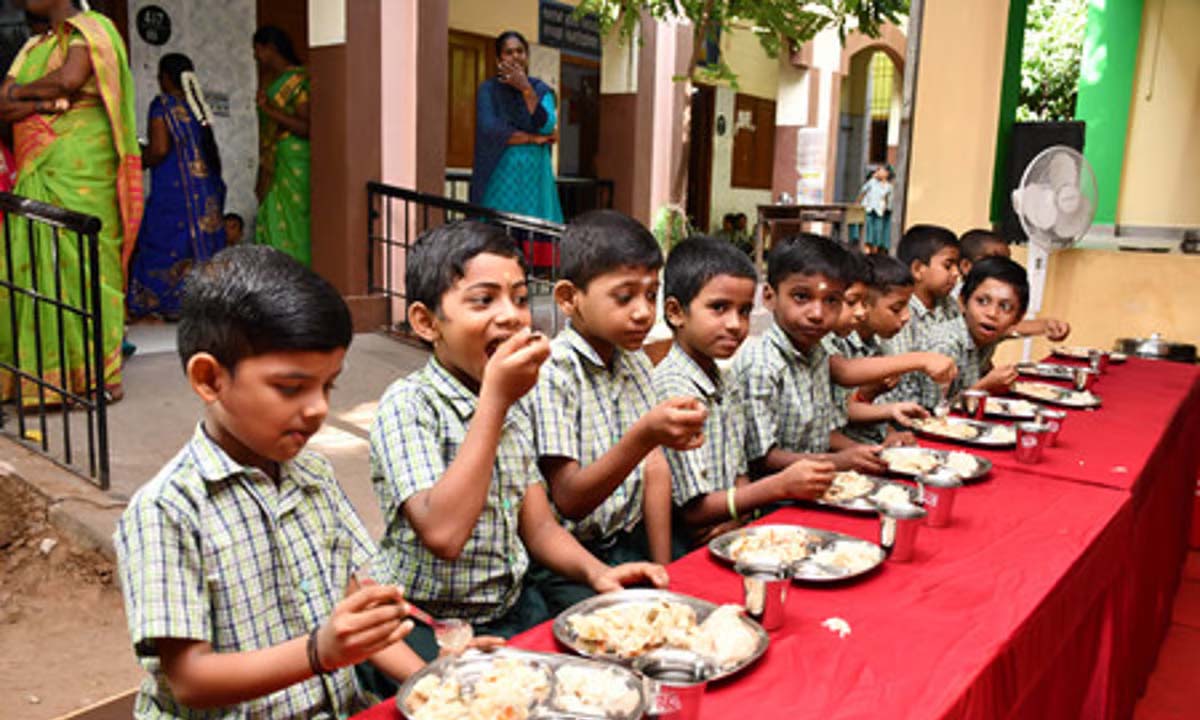Abiding by the philosophy of Dravidian Model, Chief Minister of Tamil Nadu MK Stalin has given a renewed push to the education sector in the state. Apart from enhancing the nutrition of school kids, one of the flagship programmes of his government – the morning breakfast scheme – aims to improve the human resource capital of the state in the long run.
The scheme coverage was extended to more aided schools by the chief minister on Monday. Around 24 lakh students now benefit from the scheme, making Tamil Nadu the first region in the world to offer breakfast in schools on such a large scale. Though the scheme will cost the exchequer Rs 500 crore, its short term and long term benefits will be massive.
Some may naively deride interventions like these as freebies, only progressive schemes such as these implemented by the Dravidian parties have made Tamil Nadu the numero uno state in India on human resources development. In fact, the much acclaimed mid-day meal scheme, now emulated across India, was introduced in Madras State (now Tamil Nadu) by the Justice Party (precursor of the DMK party) way back in 1921. Since then, Tamil Nadu has been a role model to the rest of India in evidence-based social interventions.
The rationale for introducing the morning breakfast schemecan be realised from a baseline study conducted among children aged 5-12, which identified that 43% did not consume breakfast daily or took it occasionally. As much as 17% were found to never eat breakfast before going to school. The study further identified that the problem of skipping breakfast was more profound among children from the bottom 40 percentile of income, or rather whose parents, particularly mothers, are daily wage labourers.
A study conducted by the European Journal of Medical and Health Sciences identified a clear positive causation between eating breakfast to happiness and concentration. Students who ate breakfast every day had higher scores in happiness index.
Similarly, another research from the University of Leeds, UK (‘The effects of breakfast on behaviour and academic performance in children and adolescents’) suggested a positive association between breakfast frequency and quality of school grades or standardised test scores.
A study in the Netherlands among 605 Dutch children found that breakfast skipping (eating breakfast <5 days/week) was associated with lower average annual school grades. With regular breakfast intake (>5 times a week), their performance showed drastic improvements.
A study conducted by the Tamil Nadu Planning Commission into the Chief Minister’s breakfast scheme also identified similar trends. It found that attendance increased by at least 20% in 90% of the schools owing to the scheme. This is why the breakfast scheme was a game-changer.
Recently, Canadian Prime Minister Justin Treaudeux announced on ‘X’ platform that breakfast would be made mandatory across primary schools via his government’s National School Food Programme. Furthermore, the Labour Party in the UK, had promised to offer free breakfast to primary school students across the country if voted to power.
As Tamil Nadu Chief Minister Stalin once said, education is the real wealth that can’t be stolen. The breakfast scheme, among others, goes a long way in providing a level-playing field for children from all backgrounds. When a government imparts the best education to all children, the overall human resources of the state improve. Better the human resource capital, better the society, and better the overall economic growth.
